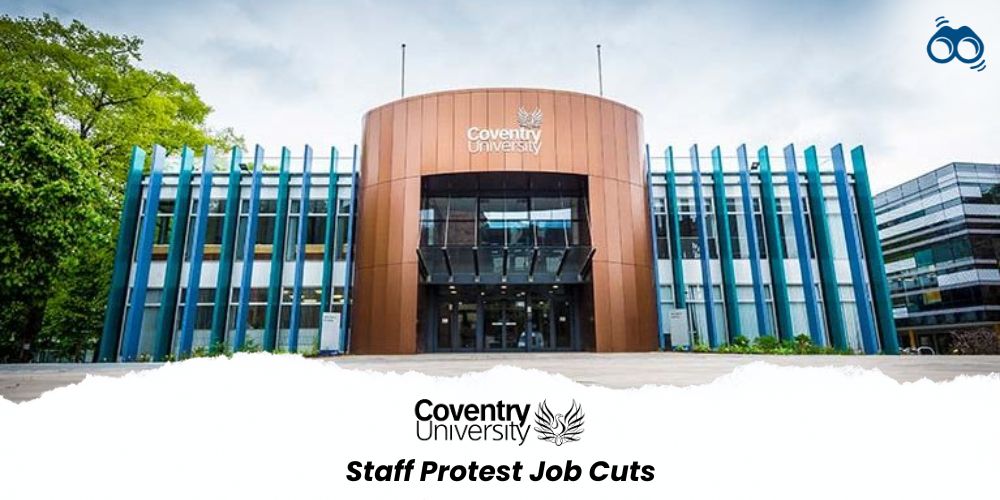Financial Pressures Ignite Tensions at Coventry University Open Day
Staff and Students Rally Against Coventry University’s Proposed Job Cuts
Staff and students at a West Midlands university have united in protest against proposed budget cuts by organizing an "alternative open day" to draw attention to the ongoing dispute. The University and College Union (UCU) claimed that up to 340 jobs are at risk due to the institution’s financial difficulties and urged the university to implement the £100 million cuts in a less harmful manner. However, Coventry University has refuted these figures and provided its explanation.
The university clarified that the alternative open day, organized by the union, was essentially a protest rally targeting prospective students who attended the university’s official open day on March 15. According to a BBC report, Coventry University plans to eliminate 92 full-time academic positions along with approximately 200 other roles. Anne O'Sullivan, a UCU representative, argued that the alternative open day sought to "showcase the best of Coventry University" through engaging speakers, artists, and activists. She also alleged that affected staff were offered positions within a subsidiary company, albeit with reduced benefits, longer hours, and no pay progression.
Citing a decline in international student numbers as the driving force behind the cuts, the university maintained that such adjustments were essential. However, O'Sullivan criticized the institution for becoming overly dependent on international student revenue, unlike other universities. While the union remained in consultation with the university, the possibility of industrial action loomed. In response, the university expressed disappointment, claiming that the rally was intentionally aimed at prospective students, which it described as counterproductive.
A spokesperson from Coventry University acknowledged the right to legitimate protests but warned that the union's actions could harm the institution itself, as student numbers and revenues are integral to preserving jobs. They emphasized that the university was not resorting to "firing and rehiring" but instead creating new roles centred on teaching and student interaction, which lacked the research expectations of traditional academic positions. The spokesperson further explained that, despite the growth in both student numbers and jobs, the student-staff ratio required readjustment. They also outlined the financial strain caused by Brexit, UK tuition fees, pension contributions, and policies affecting international students. Moreover, the spokesperson clarified that the university had never experienced a £100 million deficit, challenging the union’s claim. This conflict highlights the deep divide between university management and union representatives over balancing financial challenges with safeguarding academic and staff welfare.
Editor's Note:
The ongoing dispute at Coventry University over proposed budget cuts highlights the tension between financial pressures and maintaining academic integrity. The university justifies the cuts, including significant job losses, by citing declining international student numbers and external economic challenges. However, the drastic reduction in academic roles raises concerns about the impact on education quality and staff welfare. While the university claims to be restructuring roles rather than resorting to "firing and rehiring," offering staff positions with fewer benefits and longer hours is unlikely to alleviate the underlying frustration. The reliance on international student revenue is also questioned, with the union arguing that other institutions have diversified their funding sources.
According to Skoobuzz, this conflict underscores the need for universities to find a sustainable financial model that balances fiscal responsibility with their core educational mission. The outcome of this dispute may influence how other institutions handle similar challenges in the future.














0 Comments (Please Login To Continue)